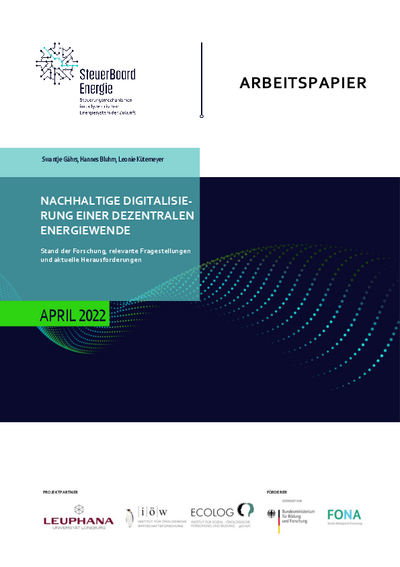Sustainable digitalization of a decentralized energy transition State of research, relevant issues and current challenges
This working paper deals with the sustainable digitalization of a decentralized energy transition and the effects on technical processes, business models and participation processes. It presents the current state of research and sheds more light on relevant aspects from a sustainability perspective. Depending on the actor and implementation, the use of digitalization pursues different goals such as reducing complexity, increasing efficiency or digital participation. Depending on the primary goal, the use of certain digital technologies, tools and methods makes sense at different points in the energy system. For example, existing processes in the energy industry are digitalized and optimized, business models are further developed or newly designed through the use of digitalization, and digital tools are used in energy transition processes.
In addition to business interests, the goal for implementing those technologies often is environmental (e. g. more efficiency or sufficiency) or social (e. g. more participation and transparency). However, from a sustainability perspective, the effects are diverse and often not yet fully researched. Assessing the environmental life cycle, the use of energy and resources through digitalization is a relevant variable. Also, the question of resilience and vulnerability through the linking of digital and electrical infrastructures is important for assessing digital use cases. With regard to social aspects such as co-determination, transparency, diversity of actors and participation, positive and negative trends can currently be observed. Here in some use cases, digitalization creates added value. However, there is also a risk of unintentional lack of transparency or exclusivity.



